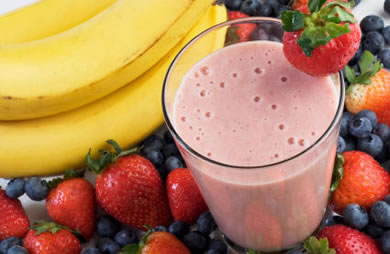“Milk—it does a body good”… unless it doesn’t.
Milk is a powerhouse of calcium and protein, but for up to 75% of people worldwide, drinking it can cause discomfort. Lactose—the natural sugar in milk—requires a special enzyme called lactase to break it down. Without enough lactase, milk can trigger bloating, cramps, gas, or diarrhea.
That doesn’t mean you have to give up on calcium or strong bones. Let’s break down what’s really happening and explore your options for keeping your bones (and body) healthy.
Understanding Lactose Intolerance
Lactose intolerance occurs when your digestive system doesn’t produce enough lactase. Without this enzyme, undigested lactose draws extra water into your intestines and ferments—causing those unpleasant symptoms.
Symptoms: Gas, bloating, nausea, cramping, or diarrhea (typically within 30 minutes to two hours after eating dairy).
Severity varies: Some people react to a whole glass of milk, others to just a sip.
Possible triggers: Aging (lactase production naturally drops after early childhood), gastrointestinal conditions (like celiac disease, Crohn’s, or IBS), and even short-term illnesses such as the flu.
Lactose intolerance is also influenced by ethnicity: it’s most common among Eastern Asians (up to 90%), American Indians (80%), Africans and African-Americans (65%), and Hispanics (50%), while less common among people of northern European descent (~15%). Premature infants may also be at higher risk.
Note: Many experts now use the term lactose maldigestion, as only a fraction of those who don’t fully digest lactose experience severe intolerance. Some can handle small amounts of dairy—like a cup of milk with food—without issues.
Lactose Intolerance vs. Dairy Allergy
These two conditions are often confused, but are very different:
Lactose intolerance: A digestive issue caused by low lactase.
Dairy allergy: An immune response to milk proteins (casein or whey) that can trigger hives, eczema, congestion, headaches, or even respiratory distress.
If you suspect either condition, see your doctor for a diagnosis. Other serious health issues can mimic these symptoms, so don’t self-diagnose.
Enjoying Dairy Without the Discomfort
Most people with lactose intolerance don’t need to give up dairy completely. Try these strategies:
Start Small: Begin with small servings of milk and increase gradually to test your tolerance.
Pair With Food: Drink milk with meals—not on an empty stomach—to slow digestion.
Choose Low-Lactose Options: Hard cheeses like cheddar, Swiss, Colby, and Parmesan have very little lactose.
Reach for Yogurt: Yogurt with live, active cultures contains bacteria that help break down lactose. Let it warm slightly before eating for maximum benefit.
Try Lactose-Free Milk: It has the same nutrients as regular milk without the lactose.
Use Lactase Enzyme Drops or Tablets: Available at pharmacies, these can help your body digest lactose.
Watch for Hidden Sources of Lactose
If you’re very sensitive, check labels on:
Bread and baked goods
Instant soups, potatoes, or breakfast drinks
Margarine and salad dressings
Non-kosher lunch meats
Pancake, biscuit, and cookie mixes
Candies, snacks, and milk chocolate
Getting Enough Calcium Without Dairy
If dairy isn’t your friend, you can still meet your calcium needs (1,000–1,200 mg/day for most adults):
Plant-Based Milks: Soy, almond, oat, rice, or hemp milk—choose calcium-fortified versions (30% DV per cup).
Non-Dairy Cheeses & Yogurts: Look for fortified options with calcium levels similar to dairy.
Calcium Supplements: If needed, choose calcium carbonate or citrate. Take no more than 500 mg at a time for the best absorption. Avoid unrefined oyster shell, dolomite, or bone meal supplements—they may contain harmful contaminants.
Talk to Your Doctor: Especially if you also take iron or certain antibiotics, which can interact with calcium.
Health Coach Tip
Managing lactose intolerance is about balance, not deprivation. With the right choices—whether that’s lactose-free milk, a handful of almonds, or a fortified plant-based option—you can support strong bones, a healthy heart, and muscle function without discomfort. A little planning goes a long way toward keeping both your body and your taste buds happy.
____________________________________
References
American College of Gastroenterology. Lactose intolerance overview. https://gi.org/topics/lactose-intolerance/
Harvard T.H. Chan School of Public Health. Lactose intolerance. The Nutrition Source. https://www.hsph.harvard.edu/nutritionsource/lactose-intolerance/
Mayo Clinic. Lactose intolerance: Symptoms & causes. https://www.mayoclinic.org/diseases-conditions/lactose-intolerance/symptoms-causes/syc-20374232
National Institutes of Health, Office of Dietary Supplements. Calcium fact sheet for consumers. https://ods.od.nih.gov/factsheets/Calcium-Consumer/













